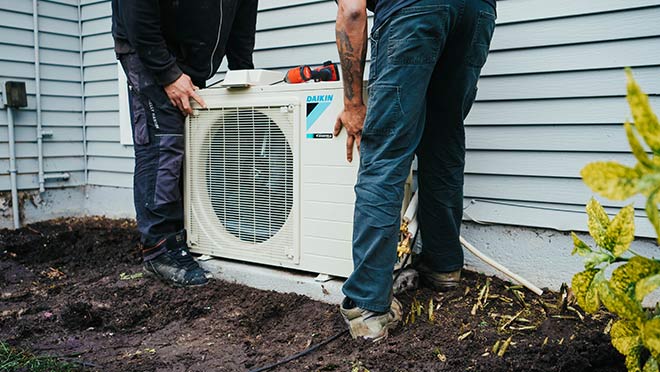Choosing the right heat pump for maximum efficiency involves a careful consideration of several factors, as the efficiency and performance of a heat pump can vary widely based on the specific requirements of your home or building. The first key factor to evaluate is the climate in which you live. Heat pumps are typically categorized into air-source, ground-source geothermal, and water-source types, each of which performs best under different conditions. Air-source heat pumps, for instance, are more affordable and efficient in moderate climates but may struggle in extreme cold, as their performance diminishes as the outdoor temperature drops. In contrast, ground-source heat pumps provide more consistent efficiency because the temperature underground remains relatively stable throughout the year, making them more effective in colder climates despite their higher initial installation cost. Another crucial element to consider is the size and insulation of your property. An undersized heat pump will work overtime to maintain comfort, leading to increased energy consumption and wear on the system, while an oversized unit may cycle on and off frequently, reducing its efficiency and causing uneven heating or cooling.

To prevent either scenario, it is essential to perform a heat load calculation to determine the appropriate size based on the square footage of the space, the quality of insulation, and the overall energy demand. A properly sized unit not only ensures optimal efficiency but also helps extend the lifespan of the heat pump by reducing unnecessary strain on the system. The efficiency of a heat pump Jnod is also heavily influenced by its Seasonal Energy Efficiency Ratio SEER or Heating Seasonal Performance Factor HSPF, which are indicators of how efficiently the unit operates over an entire season. When selecting a heat pump, opting for models with higher SEER and HSPF ratings ensures greater energy efficiency, translating to lower operational costs and a smaller environmental footprint. Many modern heat pumps come equipped with inverter technology, which adjusts the speed of the compressor based on demand, offering more precise temperature control and reducing energy consumption compared to traditional on/off systems.
In addition to these performance factors, it is important to consider the long-term operating costs. While higher-efficiency heat pumps often have a steeper upfront cost, they tend to pay off over time due to their lower energy consumption. You should also take into account any available rebates or incentives for energy-efficient appliances in your area, which can help offset initial costs. Regular maintenance is another aspect that influences the long-term efficiency of a heat pump; clean filters, well-maintained ducts, and proper refrigerant levels can all impact how efficiently the system runs. By understanding your specific heating and cooling needs, evaluating your local climate, and selecting a unit with high energy-efficiency ratings, you can maximize the performance of your heat pump while minimizing both environmental impact and operating costs.
